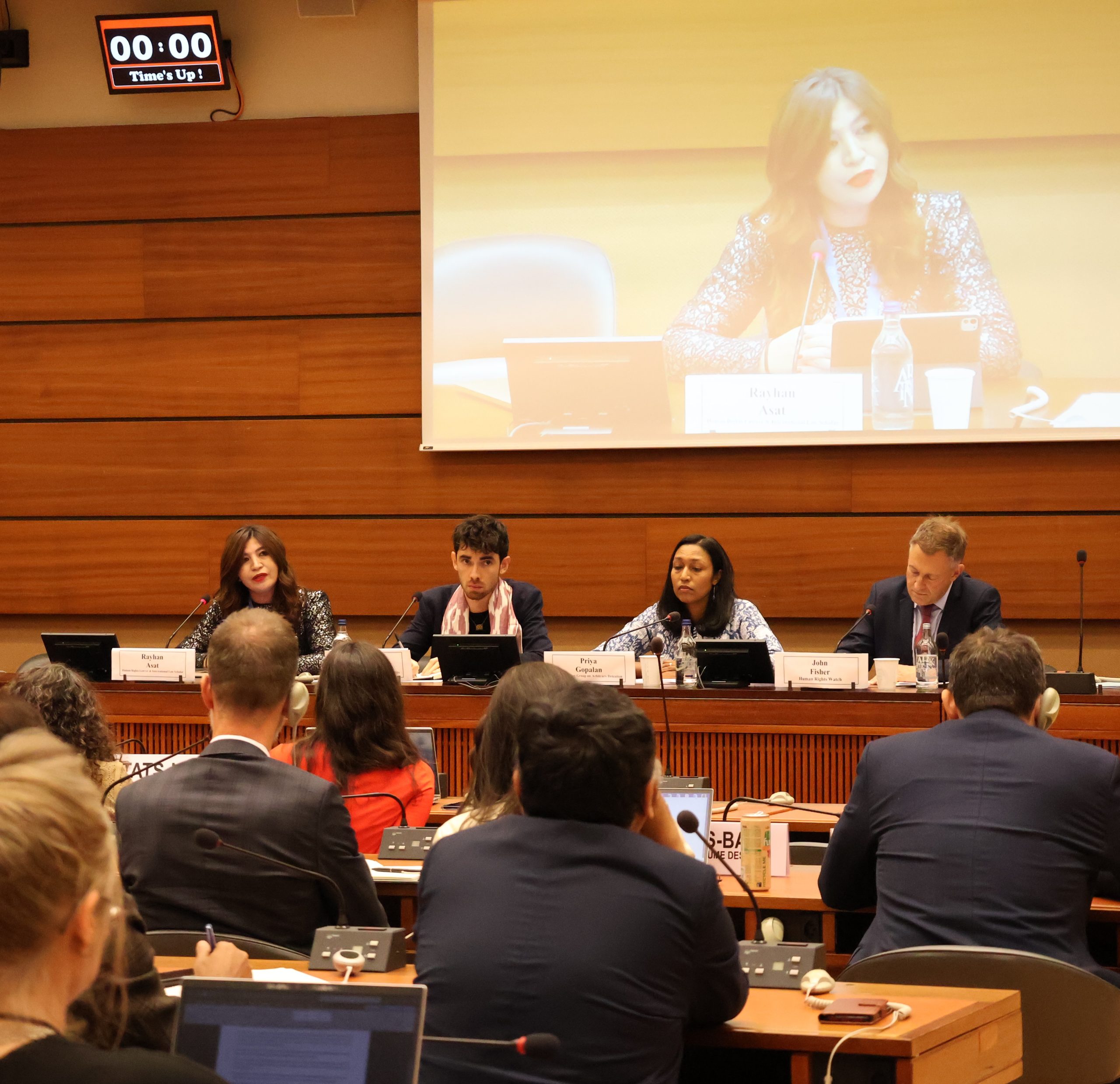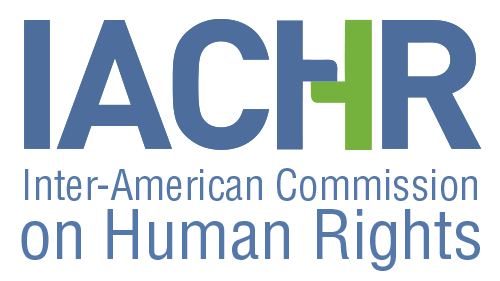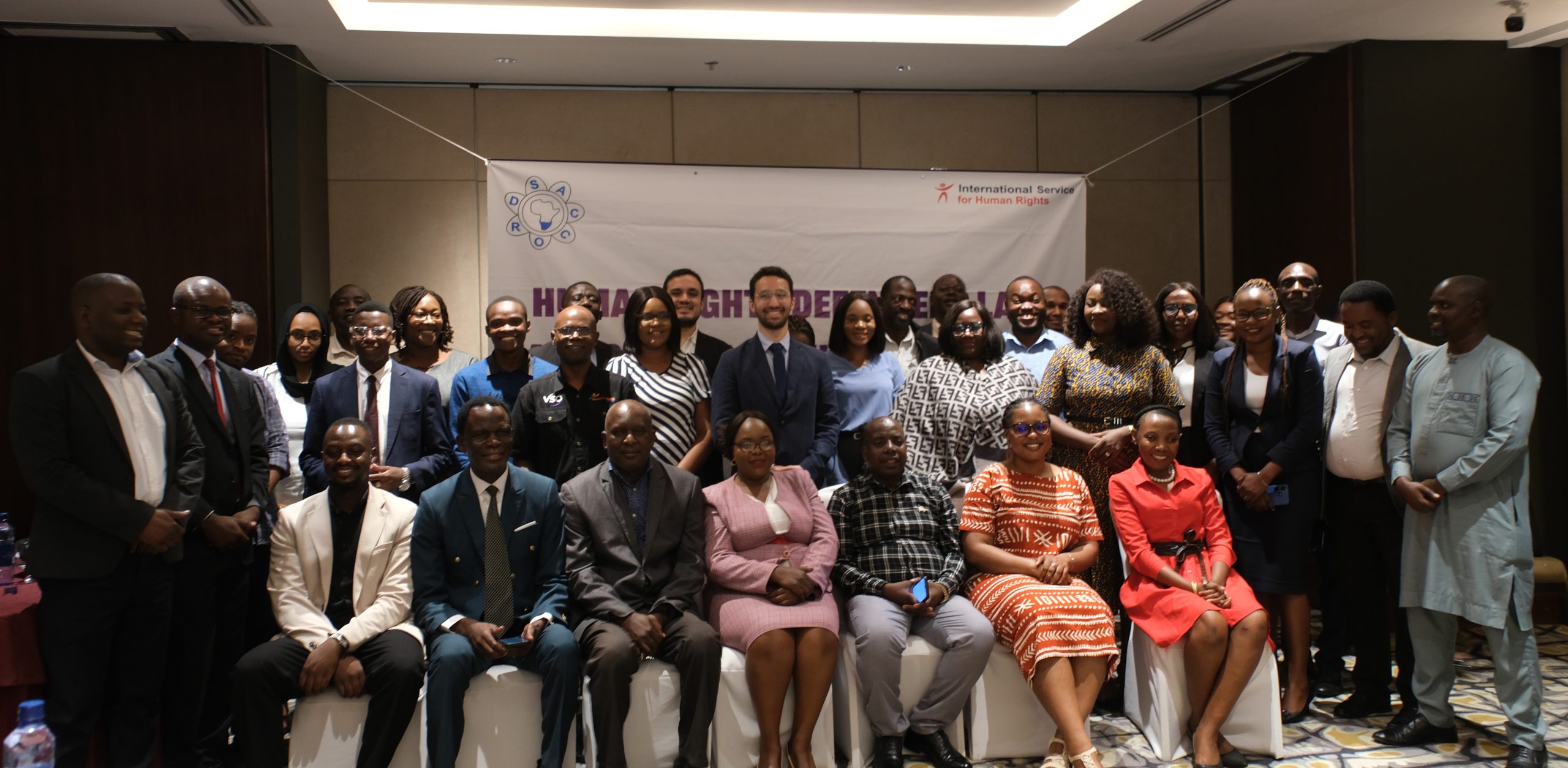ISHR has joined fifty other civil society organisations and experts calling on the US not to cut funding for the Inter-American Commission on Human Rights.
The U.S State Department is considering curtailing funding upon the request of nine US senators.
‘Cutting funding to a body that works to prevent and address violations in the Americas is counter-productive. During such political and economic flux, now’s the time to be investing in promoting the respect of human rights,’ said ISHR’s Eleanor Openshaw. ‘We urge the State Department to boost not cut support to the Commission.’
Full press release:
NEW YORK, WASHINGTON D.C. – A group of fifty civil society organizations and experts are joining calls by Members of Congress and United States nominees and former commissioners of the Inter-American Commission on Human Rights (IACHR) to maintain strong U.S. support and funding to the IACHR as the hemisphere’s principal human rights organ.
The call comes as the U.S. State Department considers curtailing funding for the IACHR, upon a request made by nine senators on December 21st, 2018. The undersigned organizations are extremely concerned that cutting or eliminating US funding would put the IACHR at a severe disadvantage in uplifting core values in the American Hemisphere—democracy, human rights, and the rule of law.
The fifty organizations and experts echo previous letters sent to U.S. Secretary of State Pompeo in February by Members of Congress, former commissioners, and nominees. The IACHR leads on efforts to fight violence, corruption, censorship, and trafficking, and to promote victims’ rights and regional responses to refugee crises throughout the Americas. The signatory organizations agree that it would be a severe misstep for the U.S. government to cut off funding to a respected organization that is mandated to protect democracy and human rights in the Americas.
Created in 1959, the IACHR is an autonomous organ of the Organization of American States (OAS) that monitors and defends human rights. The IACHR considers petitions from individuals who claim that their rights have been violated by a Member State, and they cannot find justice in their own country. The IACHR can also take concrete measures to protect individuals and groups whose lives are in imminent danger. It is also its duty to monitor the human rights situation in the Member States.
In the 1970s and 1980s, the IACHR challenged and reported abuses by repressive regimes, becoming instrumental in helping to facilitate the region’s transition to democracy. More recently, it has been a leading institution in developing human rights standards.
The signatory organizations and individuals call on all OAS Member States, including the United States, to continue supporting the IACHR and ensuring it can meet its mandate. The IACHR’s continued leadership on human rights has importance beyond the region, and it must be safeguarded.
American Civil Liberties Union (ACLU)
American Jewish World Service (AJWS)
Amnesty International
Center for Constitutional Rights (CCR)
Center for Gender & Refugee Studies, University of California Hastings College of the Law
Center for Human Rights & Humanitarian Law at American University Washington College of Law
Center for Justice and Accountability (CJA)
Center for Justice and International Law (CEJIL)
The Center for Reproductive Rights
Columbia Center on Sustainable Investment
Columbia Global Freedom of Expression
Due Process of Law Foundation (DPLF)
Human and Civil Rights Clinic, Howard University School of Law
Human Rights Clinic, University of Miami School of Law
Human Rights Clinic, University of Texas at Austin, School of Law
Human Rights & Gender Justice Clinic, City University of NY Law School
Human Rights Institute, Columbia Law School
The International Institute on Race, Equality and Human Rights
The International Justice Resource Center
Institute for Justice & Democracy in Haiti
International Human Rights Law and Practice Clinic, Northwestern Pritzker School of Law
International Service for Human Rights (ISHR)
Latin America Working Group (LAWG)
LatinoJustice PRLDEF
MADRE
New Mexico Environmental Law Center
OXFAM
Open Society Justice Initiative
Program on Human Rights and the Global Economy at the Northeastern University School of Law (PHRGE)
The Promise Institute for Human Rights, UCLA School of Law
Robert F. Kennedy Human Rights
Santa Clara Law – International Human Rights Clinic
Thurgood Marshall Civil Rights Center, Howard University School of Law
US Human Rights Network
Washington Office on Latin America (WOLA)
Women Enabled International
Women’s Refugee Commission (WRC)
Woodhull Freedom Foundation
Individual sign-ons, with affiliation listed for identification purposes only:
Susan M. Akram, Clinical Professor and Director, International Human Rights Clinic, Boston University School of Law
Douglass Cassel, Emeritus Professor Notre Dame Law School
Constance de la Vega, Madison Professor of Law, University of San Francisco
Margaret Drew, Associate Professor UMass Law School
Claudia Flores, Associate Clinical Professor of Law, Director of International Human Rights Clinic, University of Chicago Law School
Denise Gilman, Clinical Professor, Director, Immigration Clinic, University of Texas School of Law
JoAnn Kamuf Ward, Director, Human Rights in the U.S. Project, Human Rights Institute, Columbia Law School
Rebecca Landy, Human Rights Funders Network (HRFN)
Bert Lockwood, Director, Urban Morgan Institute for Human Rights, University of Cincinnati College of Law
Sarah H. Paoletti, Practice Professor of Law, Director, Transnational Legal Clinic, University of Pennsylvania School of Law
Naomi Roht-Arriaza, Albert Abramson ’54 Distinguished Professor of Law at UC Hastings
James Silk, Binger Clinical Professor of Human Rights, Yale Law School




